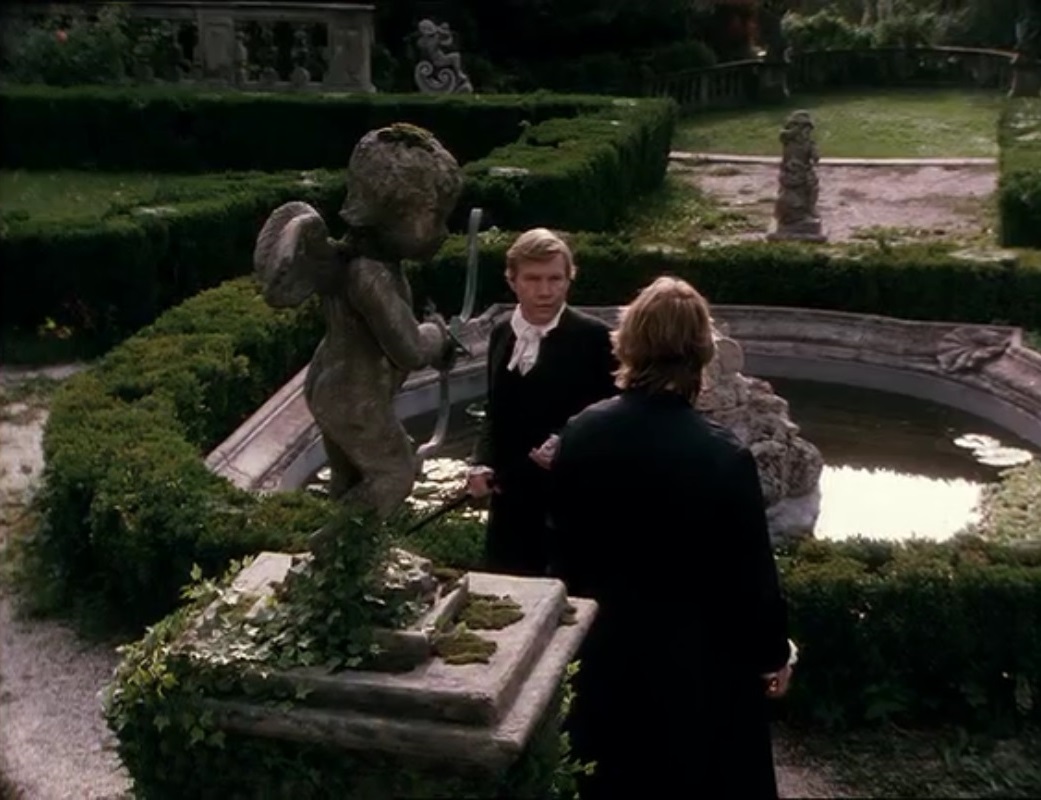Air
America
The screenplay
has Richard Rush’s signature, and if it isn’t quite correctly
filmed (cp. Freebie and the Bean),
it’s filmed according to its lights, with nonpareil aerial effects and
gags to beat the band.
What causes all the
excitement is the metaphor (what has any of this to do with Laos?). Rather than
work it out on the ground, better to get it up in the air. It flies, after all.
Stop! or My Mom Will Shoot
There ought to be
an aptitude test for critics, except that nobody cares. That is a great saving
of labor, no doubt. Fortunately, the structure of this film is so simple,
elementary and self-evident even Dr. Watson might apply unaided, that great
Boswell of detection.
You see, ladies
and gentlemen of the press (to use the term as it is commonly understood,
representing those whose profession it is to keep us in the know), the Los
Angeles police detective played by Sylvester Stallone is visited by his mother
from Newark, played by Estelle Getty. The criminal
mastermind (Roger Rees) has collected insurance on a gang of weapons burned in
a fire but secretly removed beforehand.
The mother wit of
all our top critics was found sorely lacking, not in evidence at all, and so
this great comedy languished in the shopping malls and city streets and cineplexes like Apple Annie. And so, Schumacher made Falling
Down to illustrate the dilemma.
Mesmer

Before the Royal
Society of Medicine at Paris for a consideration of his art, with reference to
the sickroom scene of Welles’ Citizen
Kane for starters, and thence to Dennis Potter’s reflection of his
theme in Brimstone and Treacle (dirs.
Barry Davis and then Richard Loncraine), the reviving power of love, cp. The Barretts of
Wimpole Street (dir. Sidney Franklin). Russell’s priest had quacks to
contend with and civil authorities to boot, it will be remembered (The Devils).
Herzog is a
mainstay (The Mystery of Kaspar Hauser,
Stroszek).
“A universal unseen force”, tierische Magnetismus, so called by the layer-on of hands and
player of the glass harmonica, applied to the treatment of mental patients in a
time of great cruelty, “poor, sick, pitiless world.”
The eminent model is Paracelsus
(dir. G.W. Pabst). A cue from Potter may have been overlooked, anyway Telemann’s great Hamburger
Ebb’ und Fluth was not used, instead there
is rather a tendency toward Forman’s Amadeus. Robert Frost famously lamented to Robert Lowell that his
own health had never been the cause of health in others, “you have to
look in,” says Potter’s Mesmer to a blind
patient, “before you can look out.” Then
there is John Barrymore’s Svengali (dir. Archie Mayo), but that is Pygmalion and so
forth, another artistic principle that sets off the one in evidence here, to
some degree.
The case he
stumbles on is a bedrock psychological problem, the story of Saint Dymphna practically (vd. Wiseman’s
Titicut Follies). Mesmer’s
mind is more than once shadowed forth after the manner of Beckett’s great
Chapter Six in Murphy, Mesmer the anti-bleeder.
“Gullibility,
gentlemen, I speak of gullibility.” The miraculous cure recalls Huston’s
Let There be Light and Freud. “I
deal with most derangements,” banished. At the court of France, shooting fish
in a barrel. Harold Lloyd has such another case in Doctor Jack (dirs. Newmeyer &
Taylor). The image of a running horse in the streets, probably from The Seven-Per-Cent Solution (dir. Herbert
Ross), disperses the assemblage sitting at night like the Sanhedrin in the
Gospels, which certainly brings to mind Bergman’s The Magician (Ansiktet).
Leonard Klady (Variety),
“wild, impressionistic view”.
Tomorrow Never Dies
A remake à la chinoise of
Lewis Gilbert’s The Spy Who Loved Me, with a press magnate villain
(who has “an edifice complex”). The
overture states Terence Young’s Thunderball and From Russia
With Love. “Let’s stay
undercover,” says Bond, when he and Wai Lin are
hailed by HMS Bedford, cf.
Burt Kennedy’s The Trouble with Spys.
The
ideally-realized sequence in which he first summons his BMW like Roy Rogers
whistling for Trigger, then climbs in the back seat and maneuvers it by remote
control around a parking garage full of well-armed villains, finally depositing
it at the Avis rental office, begins with the car’s impermeable and
electrified skin, first seen on the Nautilus in Fleischer’s 20000
Leagues Under the Sea. It’s the inevitable
division of any total spectrum, and a nice turn out of Welles’ Citizen
Kane. The Dantean
perpendicular assigns paradise to a kind of enduring rapprochement taken
as a sequel to Henry King’s Love Is a Many-Splendored
Thing. The purgatory of governments is an
accident-prone superstructure. Hell is a spy ring from
outer space that literally thrives on disaster, the kingmaker.
Historiographers of the future lay out a game plan that is “the
launch of a New World Order”, a brief flurry of war to secure business
interests for a century. The scheme is brought
unexpectedly to light. Carver sinks HMS Devonshire
to set up a battle he wins by starting it, the British fleet gets sunk, Beijing
bombed, Gen. Chang makes peace (the Nobel Committee gives him a prize), Carver
receives broadcasting rights in the Middle Kingdom for the next hundred years,
exclusively. His delusive persona strongly resembles
that of Connie, the roving correspondent, at the start of Hitchcock’s Lifeboat.